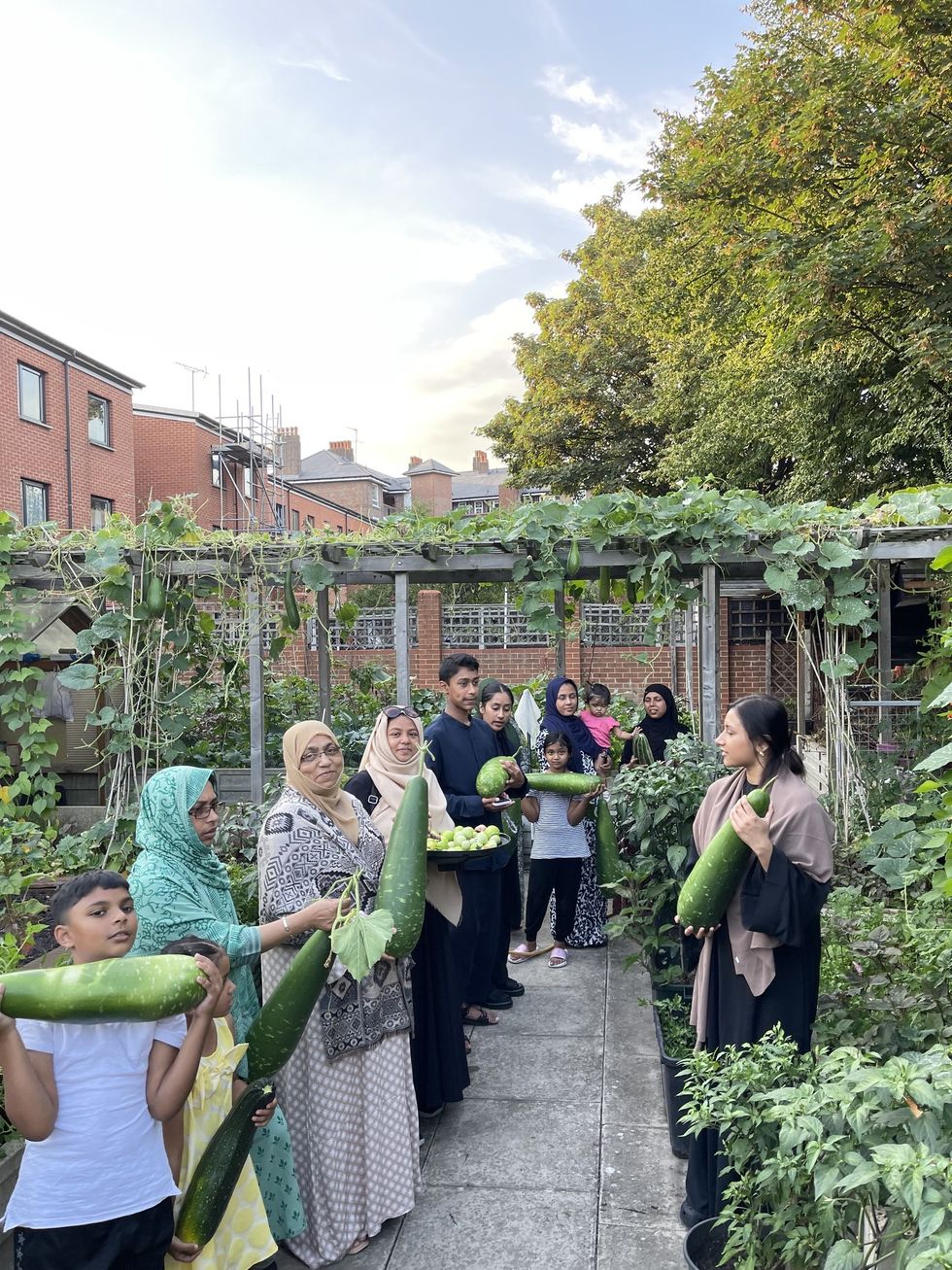THE Royal Horticultural Society (RHS) will be delighted to learn that Bangladeshi women in the East End of London are taking up gardening and growing vegetables and herbs that remind them of the green fields of Sylhet in the subcontinent.
The RHS, which is working hard to increase diversity both in its own ranks and in the wider world of gardening, has a simple motto: “Gardening is for everyone.”
Now there are signs of an early spring, it is encouraging gardeners, new and old, especially in the British Asian community, to venture outside – and plan for the summer.
RHS chief horticulturist, Guy Barter, said: “Spring marks the start of an exciting time in the garden, with plenty to look forward to. This year mild weather has caused some plants to bloom early, bringing a premature flush of flowers to gardens across the country. After a particularly wet autumn, the ground will take longer to dry in some areas, meaning affected gardeners should resist sowing until soils dry out in April to avoid disappointing results.

“While seeds can be sown indoors, there are still plenty of outdoor tasks to get on with, such as mulching perennial plants and pulling up emergent weeds. A bit of patience and careful soil management will pave the way for a successful spring in the garden.”
In the East End of London, St Peter’s Community Wellbeing Projects, a charity in Bethnal Green, is hoping to expand its community gardening club after receiving a £35,760 grant from City Bridge Foundation.
Run by trained volunteers, the club is aimed primarily at older Bangladeshi women, offering them a space in which they can be themselves, according to the charity’s projects co-ordinator, Khondoker Kamal-Uddin.
He said: “A lot of the women who come to the club left Bangladesh 20 or 30 years ago and since they’ve been here, they’ve never had access to a garden because they live in flats.
“The community here has changed a lot in recent years and for many of these women, their children have left home and even left London, leaving them feeling isolated.
“When they come here, they can relax, be themselves, laugh and sing songs together, something Bangladeshi women of their generation find hard to do around men due to cultural and religious reasons.”
Club members, including 66-year-old Nahar Begum, grow crops commonly used in Bangladeshi cuisine, such as bottle gourd, coriander and green chillis.
She said: “I really enjoy attending the gardening club. This is what makes and keeps me physically and mentally active and healthy. It is a place to meet friends and for recreation, caring for and looking after plants and vegetables from seedling to its time of harvest.”
The charity also runs an outreach service visiting housebound older people and inviting them to attend sessions, or delivering plant pots and seeds so they can grow vegetables on their balconies at home.
City Bridge Foundation is a world-class bridge owner responsible for five Thames crossings – including the iconic Tower Bridge – and London’s biggest independent charity funder.
City Bridge Foundation chairman, Giles Shilson, said: “For almost a decade, this charity has done a fantastic job of creating a safe space where older women from Bangladeshi communities can feel at home. Coming to the sessions means they not only learn about growing food and staying healthy, they also develop a feeling of freedom and independence, which is hugely beneficial to their mental and physical wellbeing.”
Meanwhile, the RHS is “sharing its top tips on how gardeners can prepare for the upcoming growing season, as well as where to see spring highlights in RHS Gardens”.
It pointed out that “spring is a time of hope and renewal and, this year, flowers including daffodils, hellebores, camellias and plums are blooming earlier, while snowdrops have been both early and more abundant. This ‘early spring’ is due to unusually mild weather in February meaning soil temperatures are above average.
“Warmer soil temperatures will promote growth of bulbs, lawns and, in the south at least, enable early seed sowing for crops such as broad beans, lettuces, onions and peas, assuming the soil is dry enough.

“There is also plenty to get on with indoors, from sowing seeds – such as tomatoes and chillies – in pots on windowsills, to chitting potatoes and repotting houseplants.”
It added: “At this time of year it’s important to assess the effects of winter and address any damage in the garden to ensure it is primed for this productive season.
While it may be tempting to give the garden a complete spring clean, it is worth sparing a thought for wildlife before tidying away all of last year’s growth, as this can still provide valuable shelter for a number of species.
“By investing a bit of time and effort now, the stage can be set for a flourishing garden that will provide colour, scent and flavour for months to come.”
The RHS offered a number of tips such as: “Spread mulch around perennial plants to lock in winter rain, suppress unwanted vegetation and support soil life, especially earthworms, that in turn feed birds and other garden wildlife.
“Wetter than usual conditions since September in many places have left low-lying gardens and ones with clay soils very wet. Cultivating, sowing and planting is difficult until the soil dries out, which may take until April. Use planks to access the garden for pruning and weeding to avoid soil damage.
“Potatoes can be planted from early spring for earlies and mid-spring for maincrops, ideally after sprouting in a light, frostfree place. Shallot, garlic and onion sets can also be planted as soon as the soil dries out. Leave heat-treated onion sets until midspring as cold conditions induce premature flowering [bolting].
“Where slugs are abundant, as is often the case after a mild, wet winter, raising young plants indoors keeps them safe from attack and, if grown to be quite large before being planted out, they can tolerate some ‘grazing’ that would be fatal to tiny plants.
“Courgettes, pumpkins, runner beans, squash, sunflowers and sweetcorn have large seeds, which will grow fast after sowing, so delay sowing these until the second half of April, or even sow outdoors where they are to grow after mid-May.” Many of these vegetables are popular with the Bangladeshi women gardeners.

















